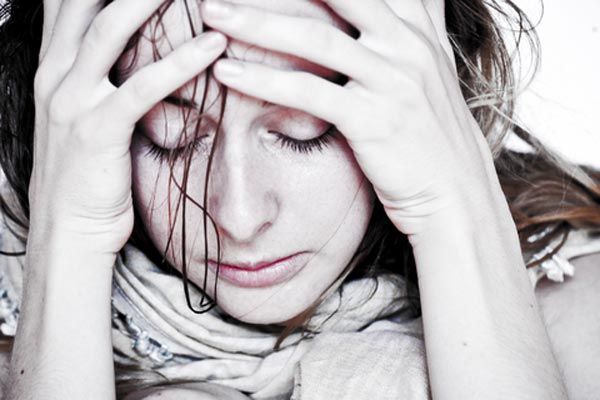Migraines Linked to Depression in Women

Women who have had migraine headaches are more likely than other women to develop depression, according to a new finding based on 14 years of health data.
The findings are to be presented today (Feb. 22) in New Orleans at the annual meeting of the American Academy of Neurology.
"This study confirms it: Having migraines increases your risk of depression, which we've suspected for many years," said Dr. Timothy A. Collins, a Duke University Medical Center neurologist who was not involved with the research. Collins specializes in headache treatment.
Researchers looked at more than 36,000 women enrolled in the Women's Health Study, and found that after 14 years, depression had developed among those who suffered from migraines at a higher rate than among those who didn't get the throbbing headaches.
Study researcher Dr. Tobias Kurth, an epidemiologist at Brigham and Women's Hospital in Boston, said women who have migraines shouldn't assume they'll develop depression, but should be aware of the link to the increased risk.
A predominantly women's affliction
Migraines can last four to 72 hours and are often accompanied by pulsating pain, nausea, vomiting and sensitivity to light and sound.
Sign up for the Live Science daily newsletter now
Get the world’s most fascinating discoveries delivered straight to your inbox.
One in 10 Americans has migraines, according to the National Institute of Neurological Disorders and Stroke, but they affect women three times more often than men.
One previous study found that women with more than 15 chronic headaches a month are four times more likely to have depression than women who have fewer than 15.
Collins noted a 2011 Canadian study that found people with migraines were more likely than others to have depression, but people with depression were no likelier than people without the condition to have migraines.
Although some antidepressants have been shown to reduce a high frequency of migraines, there is no evidence that shows that treating migraines will help with depression, Kurth said.
Women with any history of migraine are at risk
Kurth and fellow researchers looked at 36,154 women without depression who were enrolled in the Women's Health Study, an ongoing investigation conducted by Brigham and Women's Hospital and Harvard Medical School. Nearly 6,500 of the women reported having migraines, or suffering them in the past.
After 14 years, 3,971 of the women in the study had developed depression. Researchers found that women with any history of migraine had 1.3 times the risk of developing depression than women who'd never had a migraine.
"There are no good theories" to explain the link between depression and migraines, Collins said, though some have suggested hormones play a role. The drop in estrogen levels that occurs prior to menstruation is a trigger for headaches in many of his patients, he said.
Collins recommends that women talk with their doctors about how frequently they have their headaches.
"There's medication that can alleviate the pain as well as prevent them from happening so often," he said.
"Before this study, I didn't ask my patients if they had depression," Collins added. "But now I will."
Pass it on: Women who suffer from migraine are at risk of depression.
This story was provided by MyHealthNewsDaily, a sister site to LiveScience. Follow MyHealthNewsDaily on Twitter @MyHealth_MHND. Find us on Facebook.












